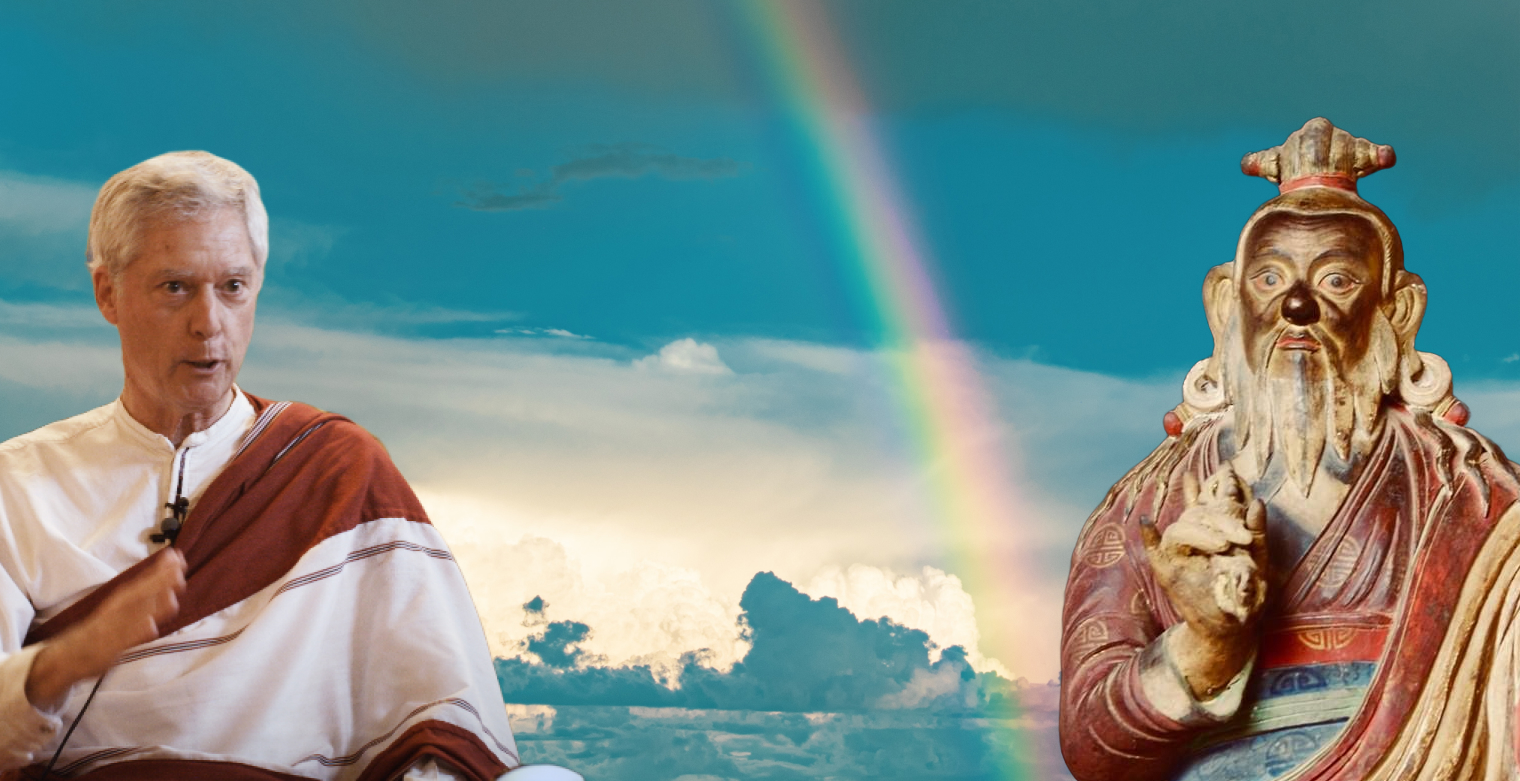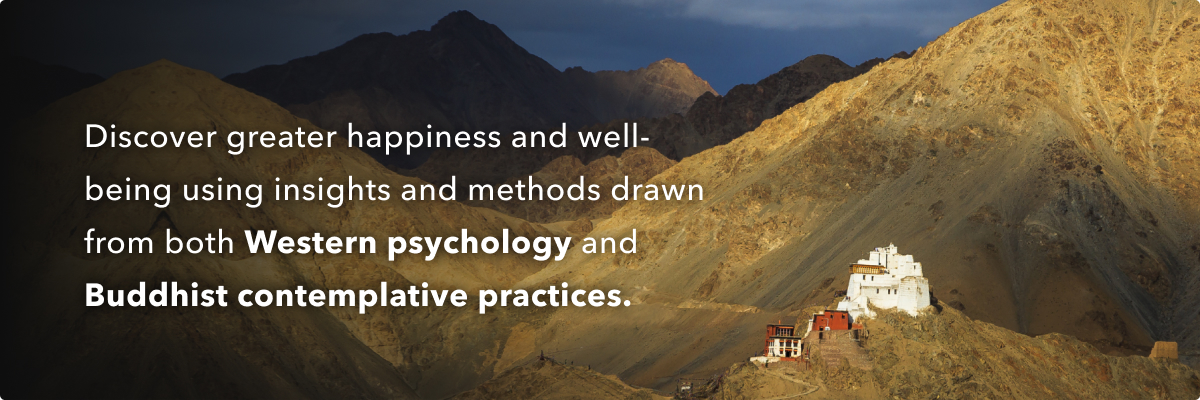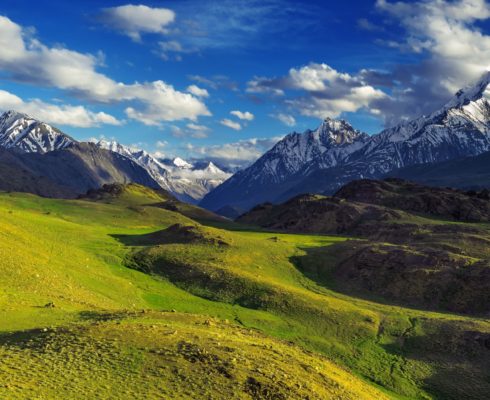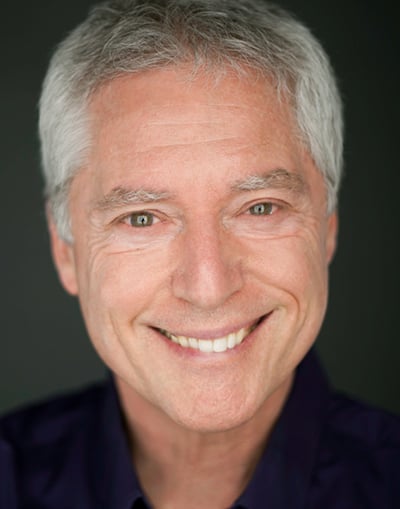
Pristine Awareness Realizing Reality
The Dharma of Well-Being, Part 2
In Pristine Awareness Realizing Reality, Lama Alan explores the wisdom of the second turning of the wheel of Dharma, and the deeper causes of mental distress and mental well-being.
You’ll learn about:
• the nature of identification and the way phenomena exist;
• dependent arising;
• the nuanced view of Mādhyamaka Prāsaṅgika philosophy;
• holistic well-being;
• the transformation from renunciation to bodhicitta;
• turning within for satisfaction and cultivating selflessness;
• and more!
In-Depth Member?
Email us now at support[@]wisdompubs.org to select
this course as one of your four for the year.
All-Access Member or Already Selected It?
Start studying with Lama Alan now.

The course explores the deepest root of suffering: grasping to inherent existence. The Middle Way teachings of the Buddha’s second turning of the wheel of Dharma look at the nature of identification and the way phenomena exist.
Understanding how the self is perceived, we can reveal the process by which we form attitudes and behaviors in our relations to other sentient beings. With this deflating of self-centered delusion, we are brought into accord with reality and able to inspire well-being for all, including ourselves.


Lesson 1: Searching for the Self
Lama Alan introduces the deepest root of suffering: grasping to inherent existence. Through searching for the nature of the self and phenomena, the fixation on the “I” can be undermined and eventually eradicated completely, leading to a balanced and healthy approach to the experiences of suffering and pleasure.

Lesson 2: Unraveling Afflictions
Lama Alan presents the core theme of the Perfection of Wisdom Sūtras: as long as reification persists, mental afflictions will continue to arise. By observing the arising of mental afflictions and not identifying with them, it can be realized that they do not exist in the way they appear.

Lesson 3: The Emptiness of Permanence
Lama Alan reveals the pinnacle of Buddhist philosophical thought, Mādhyamaka Prāsaṅgika, and how this approach to the ultimate nature of reality brings well-being and freedom from sufferin

Lesson 4: Appearances and Entities
Using the “four schools of Buddhist philosophy” model as a framework, Lama Alan highlights the ontological and epistemological implications of each progressively-deeper view into the nature of reality, which leads to the eradication of suffering and its causes.

Lesson 5: Equalizing Self and Others
Repaying the kindness that infinite sentient beings have shown us is the essence of the bodhisattva path. Lama Alan looks at ways the self is perceived and how this shapes attitudes and behaviors in relation to other beings.

Lesson 6: Ethics, Samādhi, Wisdom
In this lesson, Lama Alan introduces the actual method of the Mahāyāna student, looking at the transformation from renunciation to bodhicitta. Turning within for satisfaction and cultivating selflessness is the authentic bodhisattva path.

Lesson 7: Universal Well-Being
The path of the bodhisattva requires setting out; one must take steps toward the goal in order to arrive. Cultivating the mind through meditation provides a vehicle for the expedition to the great well-being of all beings.

Lesson 8: Entering the Mahāyāna Path
Lama Alan completes this second module, detailing how cultivation of the Six Perfections provides holistic well-being and relieves the suffering of others as well as ourselves. Sharp śamatha empowers broad bodhicitta, which is protected by deep wisdom.
 Lama Alan Wallace is the founder and director of the Santa Barbara Institute for Consciousness Studies and the Center for Contemplative Research. He trained for many years as a monk in Buddhist monasteries in India and Switzerland. He has taught Buddhist theory and practice in Europe and America since 1976 and has served as interpreter for numerous Tibetan scholars and contemplatives, including H. H. the Dalai Lama. After graduating summa cum laude from Amherst College, where he studied physics and the philosophy of science, he earned his MA and PhD in religious studies at Stanford University. He has edited, translated, authored, and contributed to more than forty books on Tibetan Buddhism, medicine, language, and culture, and the interface between science and religion.
Lama Alan Wallace is the founder and director of the Santa Barbara Institute for Consciousness Studies and the Center for Contemplative Research. He trained for many years as a monk in Buddhist monasteries in India and Switzerland. He has taught Buddhist theory and practice in Europe and America since 1976 and has served as interpreter for numerous Tibetan scholars and contemplatives, including H. H. the Dalai Lama. After graduating summa cum laude from Amherst College, where he studied physics and the philosophy of science, he earned his MA and PhD in religious studies at Stanford University. He has edited, translated, authored, and contributed to more than forty books on Tibetan Buddhism, medicine, language, and culture, and the interface between science and religion.





